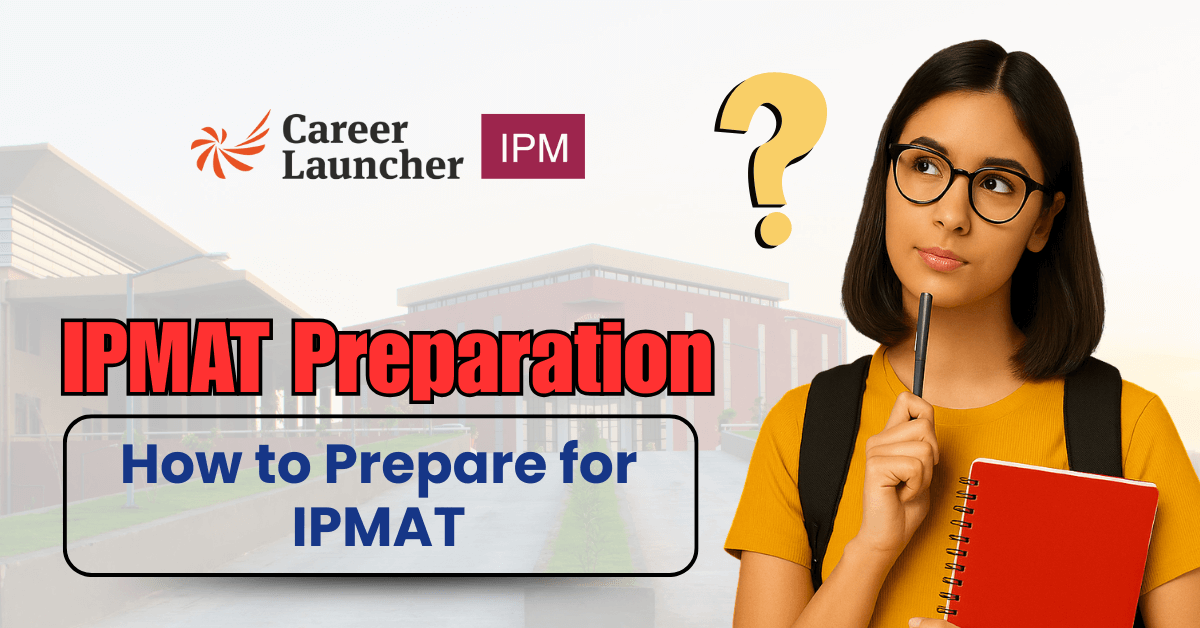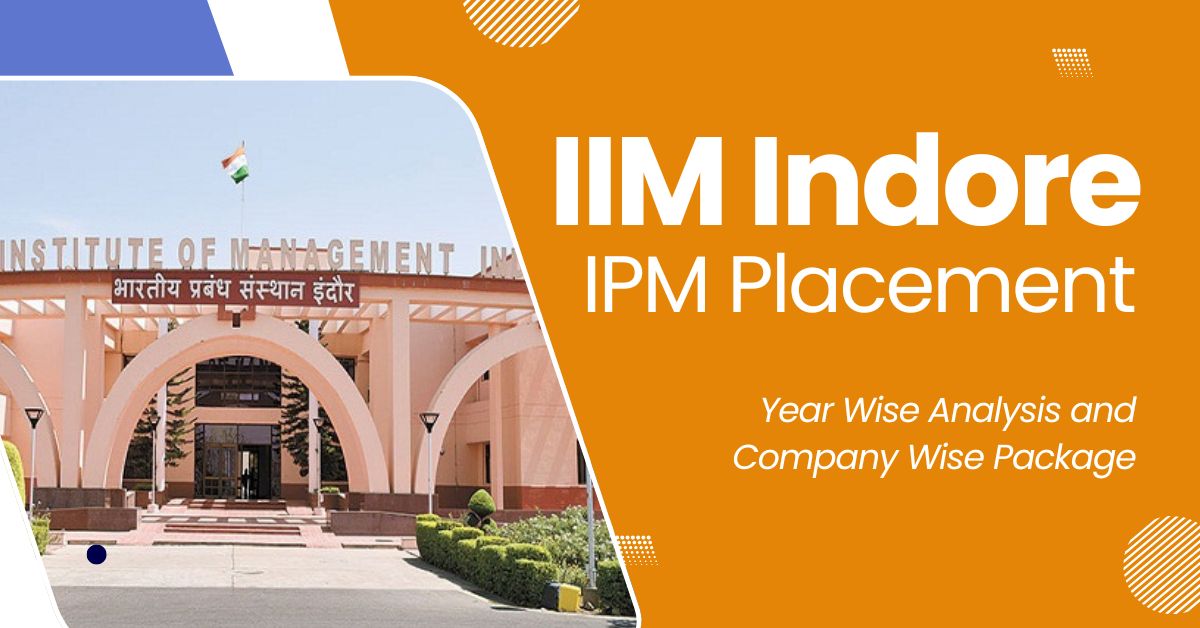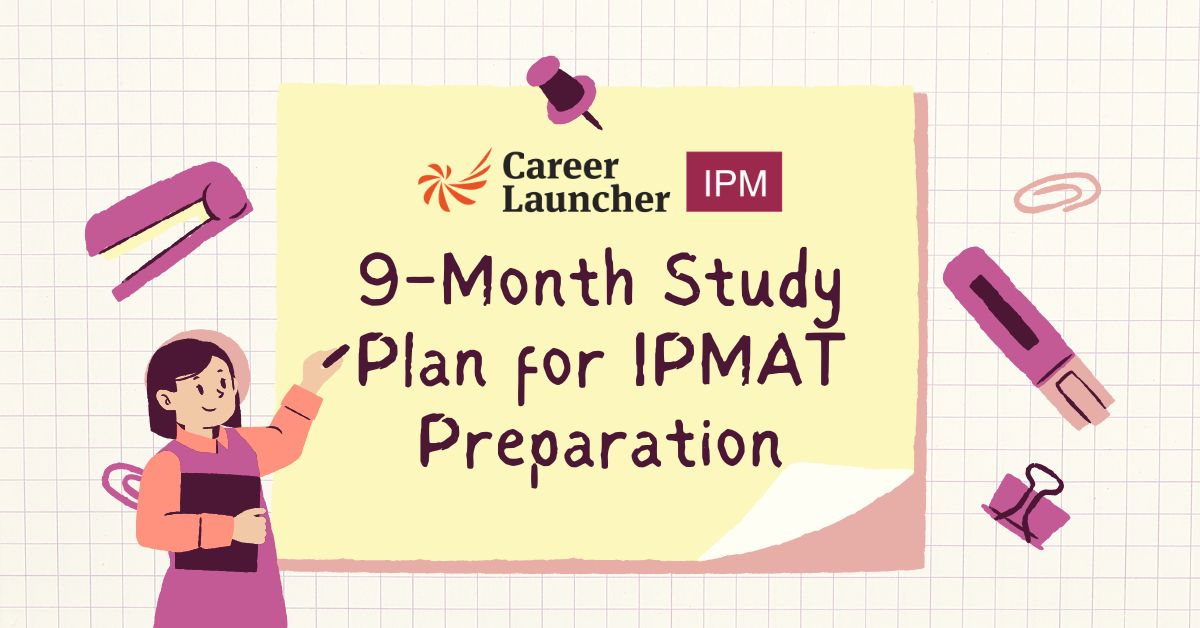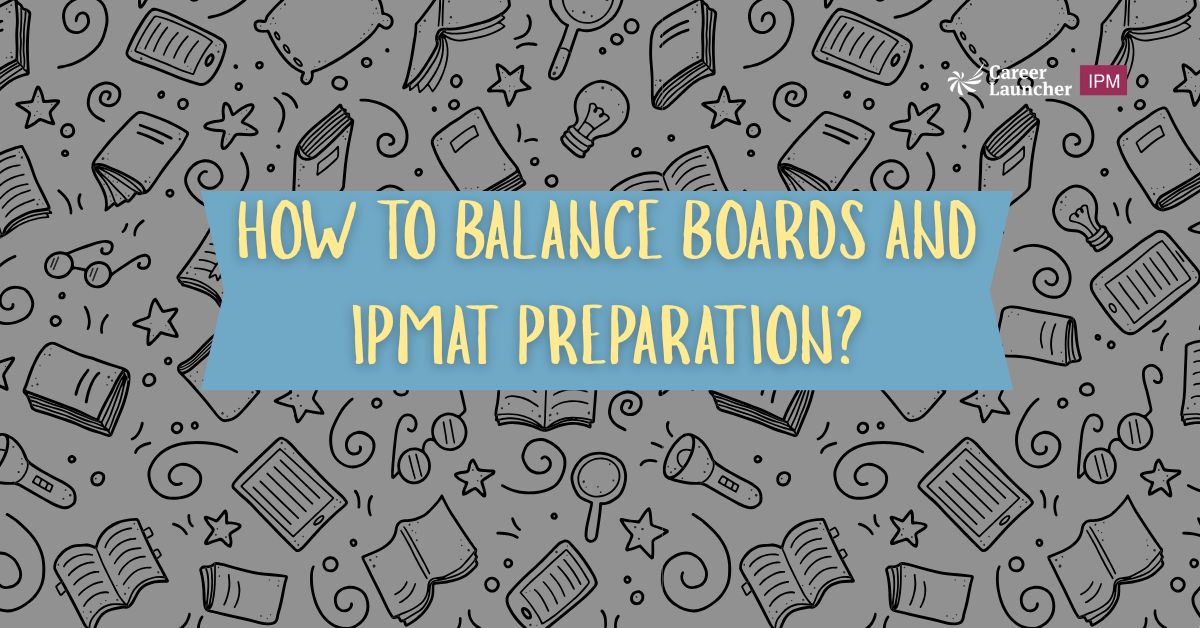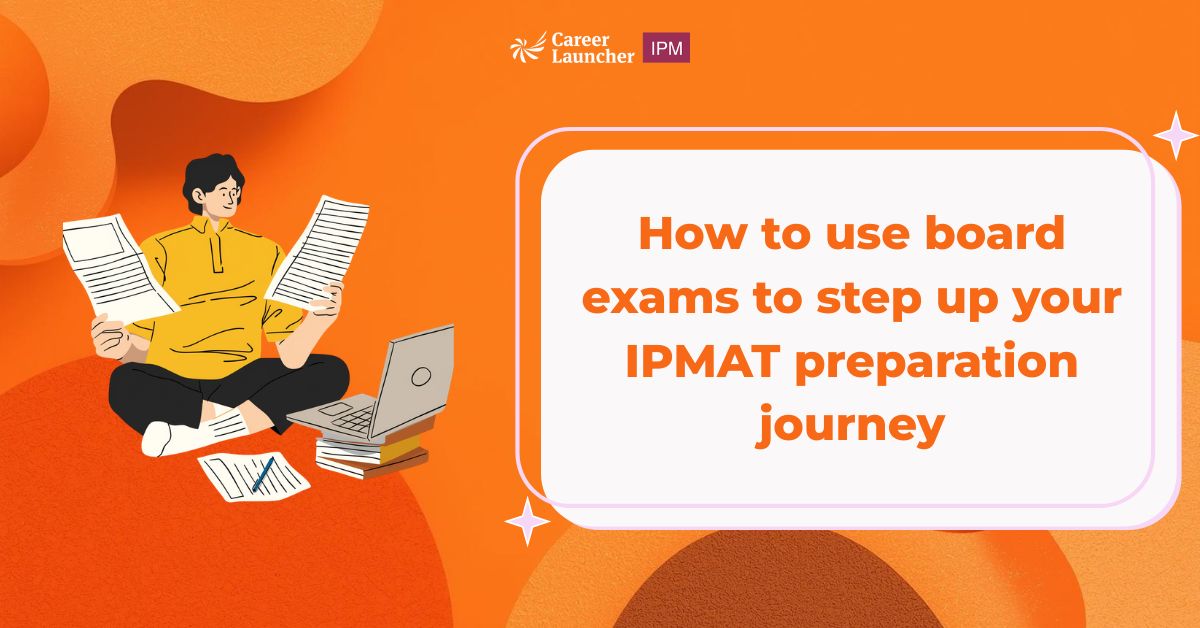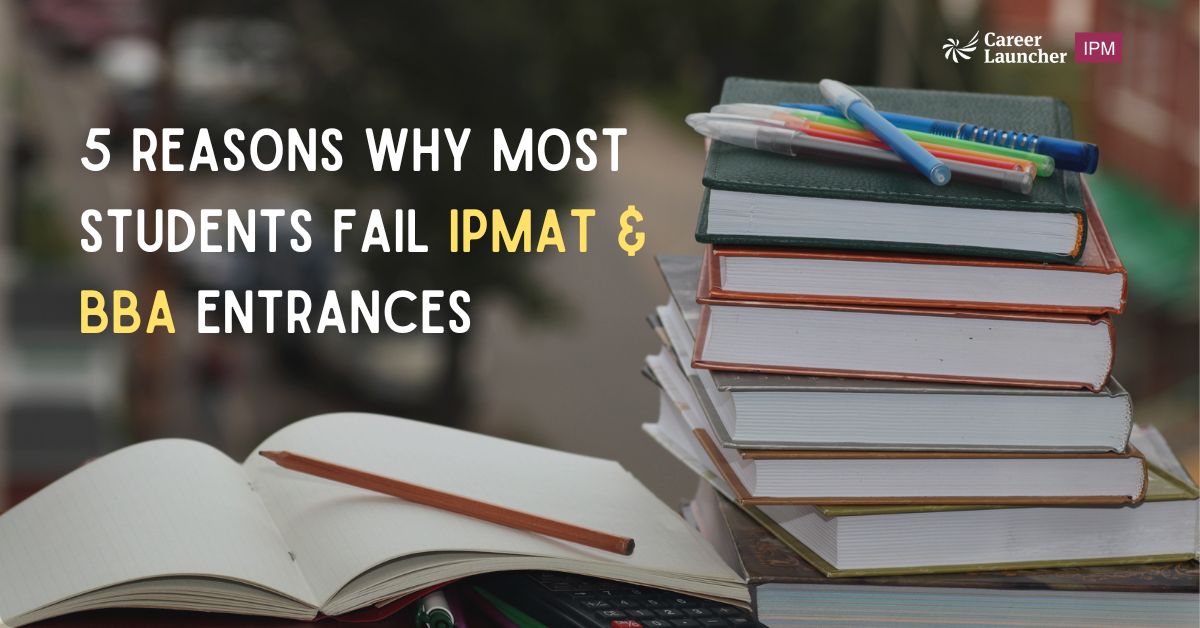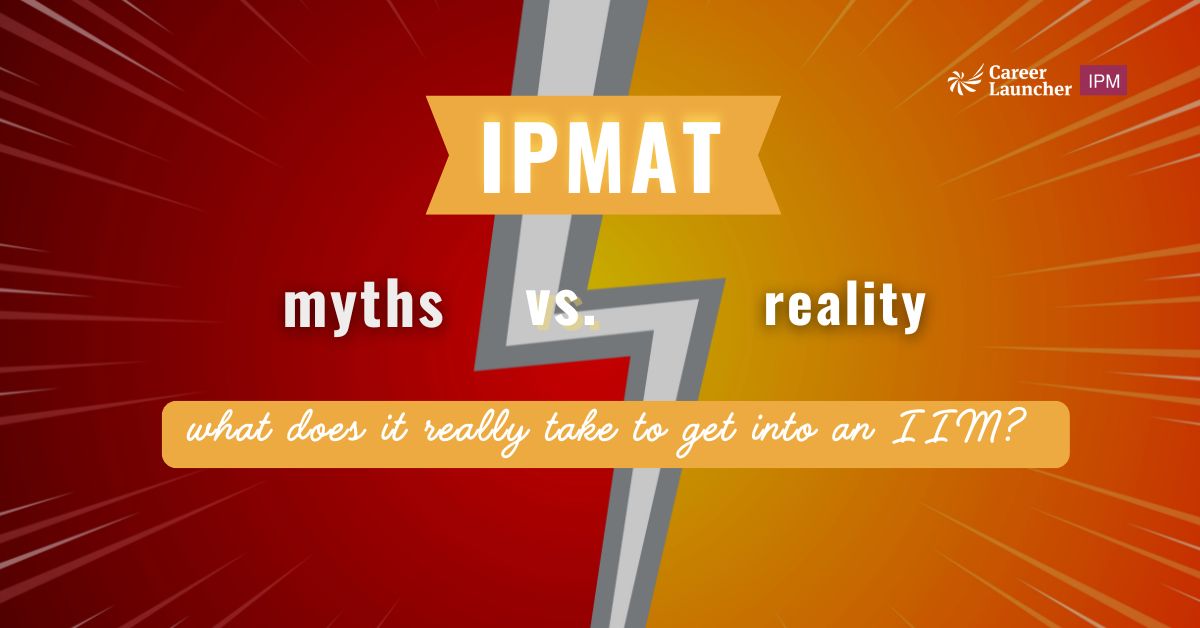Overview: Embark on your journey to crack IPMAT 2026 with this definitive guide from Career Launcher. Discover comprehensive strategies for IPMAT preparation, including effective time management, mastering mock tests, and smart study techniques tailored for all aspirants. Build a strong foundation, enhance accuracy, and achieve unparalleled success in India’s premier BBA+MBA entrance exam.
IPMAT (Integrated Program in Management Aptitude Test) stands as a gateway to prestigious IIMs like IIM Indore and IIM Rohtak, offering a coveted 5-year integrated BBA+MBA program. While often perceived as a formidable challenge due to its low acceptance rate and post-Class 12 difficulty, cracking IPMAT is entirely achievable with the right strategic approach.
At Career Launcher, we believe that IPMAT success hinges on two fundamental pillars:
- Sufficient Time: Starting early provides an invaluable advantage.
- The Right Strategy: A meticulously planned and executed preparation roadmap.
Considering you’re already immersed in your school curriculum, now is the opportune moment to kickstart your IPMAT preparation. A little extra focus and targeted effort can transform your aspirations into reality. This comprehensive article delves into a step-by-step strategy to help you conquer the IPMAT exam, paving the way for a rewarding career in management.
Table of Contents
IPMAT Preparation Strategy for 2026
Developing a robust IPMAT preparation strategy is paramount. It’s more than just a plan; it’s a dynamic roadmap designed to optimize your efforts and maximize your scores. While joining a reputed IPMAT coaching institute like Career Launcher often means experts will craft this strategy for you, this section provides invaluable insights for self-preparation or for those seeking an alternate perspective.
How to Prepare for IPMAT? Beginners and Droppers
Your ideal IPMAT preparation strategy highly depends on your current academic standing and prior experience.
Strategy for Beginners (First-Time Takers)
For students appearing for IPMAT for the first time, establishing a strong foundation is key. You’re building from the ground up, so a structured, step-by-step approach is crucial.
- Comprehensive Syllabus Understanding: Begin by thoroughly understanding the IPMAT syllabus for Quantitative Ability (QA), Verbal Ability (VA), and Logical Reasoning (LR).
- Fundamental Concept Building: Dedicate ample time to clarify basic concepts in Mathematics (from Class 6-10, and advanced topics for IPMAT Indore’s QA-SA section) and English Grammar.
- Gradual Difficulty Progression: Don’t jump to advanced problems immediately. Start with easy and moderate questions to build confidence and reinforce understanding.
- Regular Practice: Consistent daily practice across all sections is non-negotiable.
- Early Mock Tests: Introduce mock tests early in your preparation cycle, even if you haven’t completed the entire syllabus. This helps you understand the exam pattern and identify weak areas.
Prepare smarter with Career Launcher IPMAT Programs
Access expert guidance, study materials, and proven strategies for your IPMAT exams.
Start learning →Strategy for Droppers (Repeat Takers)
If you’re re-attempting the IPMAT exam, your strategy should be more nuanced, focusing on refinement and addressing previous shortcomings.
- In-Depth Performance Analysis: Critically analyze your previous IPMAT attempts. Identify specific sections, topics, or question types where you consistently struggled.
- Reinforce Weak Areas: Prioritize strengthening these identified weaknesses rather than simply revisiting everything.
- Advanced Problem Solving: Focus on solving higher-difficulty problems and understanding complex concepts.
- Time Management Refinement: Experiment with different section-attempting strategies during mock tests to optimize your time allocation.
- Maintain Strengths: Don’t neglect your strong areas; regular practice is essential to maintain proficiency.
IPMAT Exam-Taking Strategy
There’s no one-size-fits-all approach to taking the IPMAT exam. Your temperament and individual strengths will dictate your optimal strategy. Experiment with these common approaches during mock tests to find what works best for you:
- Attempt All Questions (with calculated risks): This strategy works if you have high accuracy and are comfortable with negative marking. Focus on completing as many questions as possible while maintaining a good hit rate.
- Maximize Attempts with 60-70% Accuracy: Aim for a high volume of attempts, understanding that a certain percentage will be incorrect. This requires strong time management to cover maximum ground.
- Prioritize Accuracy (80-90%): Focus on solving questions accurately, even if it means attempting fewer. This is ideal if you’re strong in specific sections and can identify solvable questions quickly.
Recommendation: Try all these strategies across multiple mock tests to understand which one yields the highest score for you.
What is the Ideal Time to Prepare For IPM Exams?
The ideal time to prepare for IPM exams differs from student to student. There are a number of factors that govern this decision. A few of those factors are mentioned below.
Prior Experience with Competitive Exams
If the aspirant has already been preparing for exams involving higher aptitude preparation, such as JEE, NEET, etc, then IPM preparation becomes fairly easy.
Math or Non-Math Student
An aspirant’s grasp of mathematical concepts makes their IPMAT preparation journey 30-40% easier and hence it reflects on the time taken to prepare for the exam.
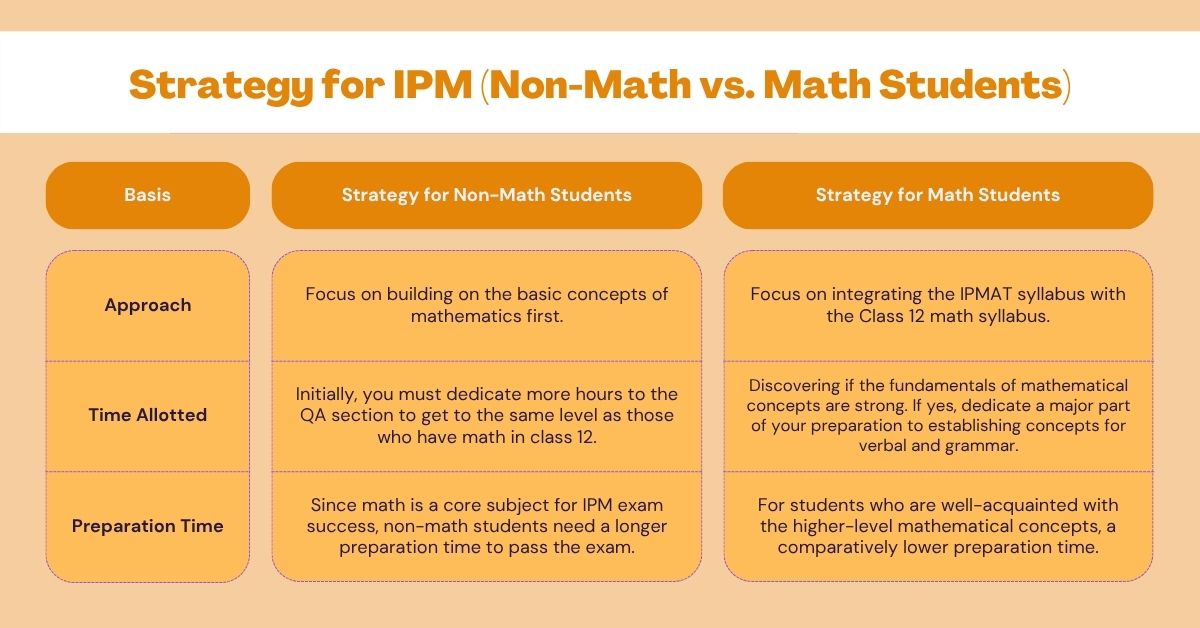
Command on Verbal Comprehension
If an aspirant is an avid reader; it will inversely have an impact on the time taken to prepare. Verbal and Mathematics act as the pillars of the IPMAT syllabus, a good command over any of these aspects can make the aspirant stand a good chance in IPM.
7 Effective Tips for IPMAT Preparation & Success
Beyond a broad strategy, specific tactical tips can significantly enhance your IPMAT preparation for 2026.
1. Master Mathematics & Verbal Ability Fundamentals
The Quantitative Ability (QA) and Verbal Ability (VA) sections are the backbone of IPMAT. A strong grasp of fundamentals is non-negotiable.
- Mathematics: Begin with a comprehensive review of NCERT Mathematics concepts from Class 6 to 10. For IPMAT Indore, delve deeper into Class 11 & 12 topics, especially for the Quantitative Ability (Short Answer) section. Practice regularly to improve speed and accuracy in calculations.
- Verbal Ability (English & Grammar): Revisit grammar rules taught from Class 6 to 10. Focus on areas like parts of speech, tenses, subject-verb agreement, sentence correction, and vocabulary building. Regular reading of diverse genres (newspapers, magazines, novels) will significantly improve comprehension, vocabulary, and reading speed.
2. Adopt a Progressive Difficulty Approach
Avoid the temptation to jump straight to the toughest problems. A structured progression is far more effective.
- Start Simple: Begin with foundational questions for each topic. This builds confidence and ensures a solid understanding of the basics.
- Gradual Increase: Incrementally move to moderate and then difficult questions. This systematic approach helps you identify conceptual gaps early and build problem-solving muscle.
- Dual Benefits: This method not only builds confidence but also trains you to quickly identify easy questions in the actual exam, maximizing your score.
3. Ensure Consistent & Dedicated Study
Consistency is key to cracking any competitive exam. Allocate dedicated time for daily self-study, even if you are enrolled in coaching.
- Daily Targets: Set daily goals for covering specific mathematical concepts, grammar rules, vocabulary, and reading comprehension exercises.
- Well-Rounded Preparation: Don’t neglect any section. Consistent effort across all areas ensures a balanced and thorough preparation.
- Structured Routine: Integrate weekly mock tests, sectional tests, and topic-specific assessments into your routine.
- Balanced Schedule: Create a realistic study plan that accommodates your school activities, extracurriculars, and personal time.
4. Prioritize Frequent Mock Tests & Analysis
Mock tests are the ultimate gauge of your preparation. They are not merely for the “end stage” of your journey.
- Beyond Concepts: Mock tests evaluate not just your subject knowledge but, more importantly, your time management, accuracy under pressure, and decision-making skills.
- Early Integration: Start taking mock tests early in your preparation cycle. For example, aim to take a full-length mock test for both IPMAT Indore and IPMAT Rohtak at least once every 15 days, even if you haven’t finished the entire syllabus.
- Familiarization & Refinement: This practice familiarizes you with the exam format, question types, and helps you refine your time allocation strategies, enhancing overall readiness.
This practice not only familiarizes you with the exam format but also aids in refining your time allocation strategies, enhancing your overall readiness.
5. Leverage Your IPM Preparation Partner & Community
The IPMAT preparation journey can be long and demanding. Staying motivated throughout requires support.
- Coaching Institutes: If you’re enrolled in IPMAT online coaching with Career Launcher, leverage the expert guidance, structured curriculum, and peer group support.
- Online Communities: For self-preparers or those seeking additional resources, join reputable online IPMAT preparation channels and communities. These platforms offer valuable insights, doubt-solving opportunities, and a sense of camaraderie.
For YouTube Channel:
For Telegram Community Join:
6. Master Mock Test Analysis: Identify Strengths & Weaknesses
Taking mock tests is only half the battle; analyzing them is where the real learning happens.
- Dedicated Analysis Time: Dedicate 3-4 hours after each mock test for thorough analysis.
- Self-Correction First: Before looking at solutions, review your incorrect answers and identify the mistakes. Was it a conceptual error, calculation mistake, or time pressure?
- Targeted Improvement: This meticulous analysis helps pinpoint your strong areas and, more importantly, your weak points, allowing you to focus your efforts strategically.
7. Early Commencement: The Unbeatable Advantage
Starting your IPMAT self-study well in advance is a game-changer.
- Balanced Preparation: It allows you to maintain a healthy balance across all subjects and assessments.
- Consistent Monitoring: Regular mock tests and sectional assessments enable you to continuously monitor your progress, evaluate your strategy’s effectiveness, and benchmark your performance against other aspirants.
- Boosted Confidence: Early preparation significantly contributes to overall confidence and competence, reducing exam day anxiety.
Structuring Your Study Timeline
| Timeline | Focus |
| Months 6–4 before |
Deep concept revision + Level‑1 practice drills
|
| Months 4–2 before |
Graduate to Level‑2 & Level‑3 practice questions
|
| Final 2 months |
Mock-tests every 10 days + full revision + timed sets
|
| Final 2 weeks |
Topic–wise mini‑tests, strategy polishing, exam mindset prep
|
Check out this Reddit Post to know what the IPMAT Aspirants are saying:
IPMAT Preparation Experience (and suggestions for 2025tards)
byu/Complex-Artichoke680 inIPMATtards
Best Books for IPMAT Preparation
Although the exam is conducted in the online mode, students still prefer books for learning the majority of the concepts.
No one book can cover the extensive syllabus of IPMAT. According to experts, the following is a list of some of the best books that are recommended for students preparing for IPMAT for each section:
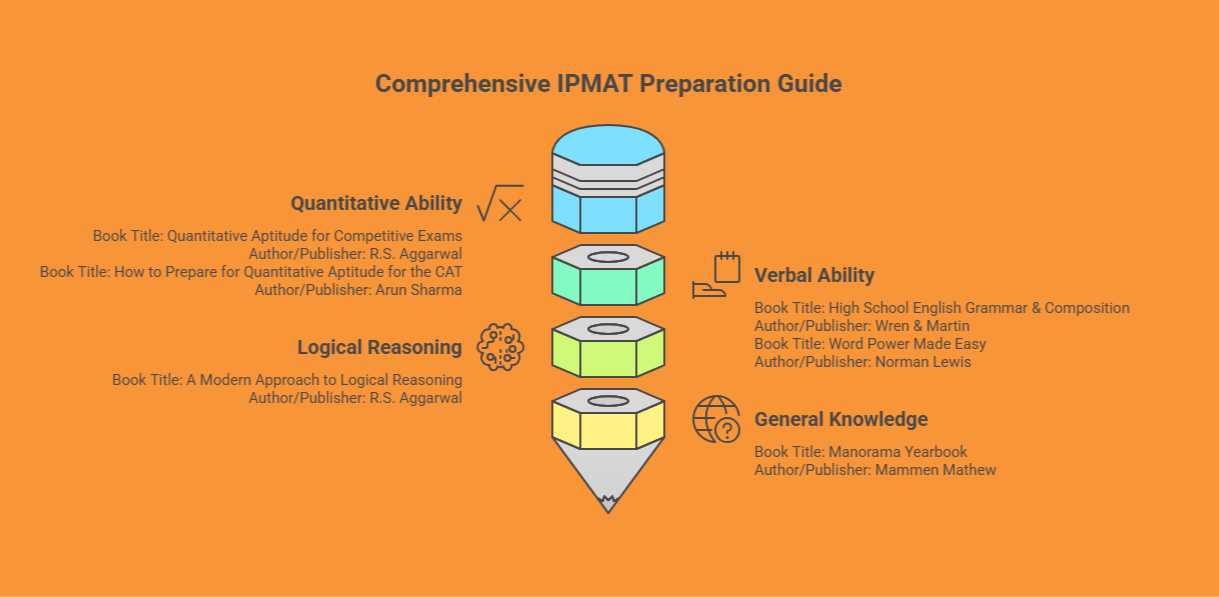
Most of these books are covered for CAT preparation as well, insisting on the parallels between the IPM and CAT exam structures and also the scope of the exams.
Frequently Asked Questions:
What is IPMAT and why is it important?
IPMAT (Integrated Program in Management Aptitude Test) is the entrance exam for the 5-year BBA+MBA program at top IIMs like Indore and Rohtak. Cracking it opens doors to a prestigious management career.
Which sections are asked in IPMAT?
The main sections are Quantitative Ability (MCQ + Short Answer), Verbal Ability, and sometimes Logical Reasoning (for certain IIMs).
How much time does it take to prepare for IPMAT?
It depends on your background. Math students or those preparing for exams like JEE may need less time, while non-math students should start earlier to build confidence in Quant.
Are mock tests important for IPMAT preparation?
Yes, mock tests are crucial. They help you manage time, improve accuracy under pressure, and refine your exam strategy. Analyzing mocks is just as important as taking them.
What are the best books for IPMAT preparation?
There isn’t one single book. Students usually prepare with a mix of NCERTs (for basics) and standard CAT-level books for Maths and English. Coaching material from institutes like Career Launcher is also highly recommended.

